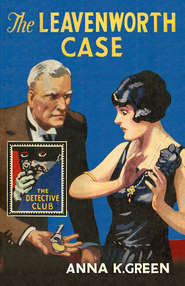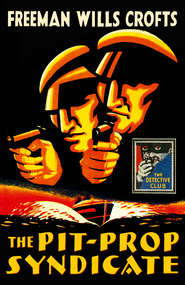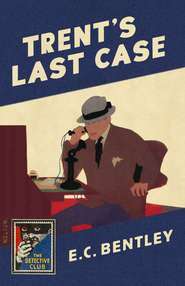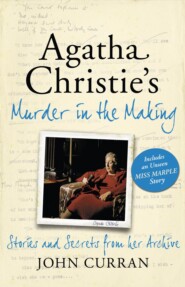По всем вопросам обращайтесь на: info@litportal.ru
(©) 2003-2024.
✖
The Mystery of the Yellow Room
Автор
Год написания книги
2019
Настройки чтения
Размер шрифта
Высота строк
Поля
‘Can you, Monsieur de Marquet, give us any information as to this affair, without inconvenience to the course of your inquiry?’
‘It is impossible for us to do it,’ replied Monsieur de Marquet. ‘I can only say that it is the strangest affair I have ever known. The more we think we know something, the further we are from knowing anything!’
We asked Monsieur de Marquet to be good enough to explain his last words; and this is what he said—the importance of which no one will fail to recognize:
‘If nothing is added to the material facts so far established, I fear that the mystery which surrounds the abominable crime of which Mademoiselle Stangerson has been the victim will never be brought to light; but it is to be hoped, for the sake of our human reason, that the examination of the walls, and of the ceiling of the Yellow Room—an examination which I shall tomorrow intrust to the builder who constructed the pavilion four years ago—will afford us the proof that may not discourage us. For the problem is this: we know by what way the assassin gained admission—he entered by the door and hid himself under the bed, awaiting Mademoiselle Stangerson. But how did he leave? How did he escape? If no trap, no secret door, no hiding place, no opening of any sort is found; if the examination of the walls—even to the demolition of the pavilion—does not reveal any passage practicable—not only for a human being, but for any being whatsoever—if the ceiling shows no crack, if the floor hides no underground passage, one must really believe in the Devil, as Daddy Jacques says!’
And the anonymous writer in the Matin added in this article—which I have selected as the most interesting of all those that were published on the subject of this affair—that the examining magistrate appeared to place a peculiar significance to the last sentence: ‘One must really believe in the Devil, as Jacques says.’
The article concluded with these lines:
We wanted to know what Daddy Jacques meant by the cry of the Bête du bon Dieu. The landlord of the Donjon Inn explained to us that it is the particularly sinister cry which is uttered sometimes at night by the cat of an old woman—Mother Angenoux, as she is called in the country. Mother Angenoux is a sort of saint, who lives in a hut in the heart of the forest, not far from the grotto of Sainte-Geneviève.
The Yellow Room, the Bête du bon Dieu, Mother Angenoux, the Devil, Sainte-Geneviève, Daddy Jacques—here is a well entangled crime which the stroke of a pickaxe in the wall may disentangle for us tomorrow. Let us at least hope that, for the sake of our human reason, as the examining magistrate says. Meanwhile, it is expected that Mademoiselle Stangerson—who has not ceased to be delirious and only pronounces one word distinctly, ‘Murderer! Murderer!’—will not live through the night.’
In conclusion, and at a late hour, the same journal announced that the Chief of the Sûreté had telegraphed to the famous detective, Frédéric Larsan, who had been sent to London for an affair of stolen securities, to return immediately to Paris.
CHAPTER II (#ulink_bf48465e-2297-55d0-8844-825b3167c6b5)
IN WHICH JOSEPH ROULETABILLE APPEARS FOR THE FIRST TIME (#ulink_bf48465e-2297-55d0-8844-825b3167c6b5)
I REMEMBER as well as if it had occurred yesterday, the entry of young Rouletabille into my bedroom that morning. It was about eight o’clock and I was still in bed reading the article in the Matin relative to the Glandier crime.
But, before going further, it is time that I present my friend to the reader.
I first knew Joseph Rouletabille when he was a young reporter. At that time I was a beginner at the Bar and often met him in the corridors of examining magistrates, when I had gone to get a ‘permit to communicate’ for the prison of Mazas, or for Saint-Lazare. He had, as they say, ‘a good nut’. He seemed to have taken his head—round as a bullet—out of a box of marbles, and it is from that, I think, that his comrades of the press—all determined billiard-players—had given him that nickname, which was to stick to him and be made illustrious by him. He was always as red as a tomato, now gay as a lark, now grave as a judge. How, while still so young—he was only sixteen and a half years old when I saw him for the first time—had he already won his way on the press? That was what everybody who came into contact with him might have asked, if they had not known his history. At the time of the affair of the woman cut in pieces in the Rue Oberskampf—another forgotten story—he had taken to one of the editors of the Epoque—a paper then rivalling the Matin for information—the left foot, which was missing from the basket in which the gruesome remains were discovered. For this left foot the police had been vainly searching for a week, and young Rouletabille had found it in a drain where nobody had thought of looking for it. To do that he had dressed himself as an extra sewer-man, one of a number engaged by the administration of the city of Paris, owing to an overflow of the Seine.
When the editor-in-chief was in possession of the precious foot and informed as to the train of intelligent deductions the boy had been led to make, he was divided between the admiration he felt for such detective cunning in a brain of a lad of sixteen years, and delight at being able to exhibit, in the ‘morgue window’ of his paper, the left foot of the Rue Oberskampf.
‘This foot,’ he cried, ‘will make a great headline.’
Then, when he had confided the gruesome packet to the medical lawyer attached to the journal, he asked the lad, who was shortly to become famous as Rouletabille, what he would expect to earn as a general reporter on the Epoque?
‘Two hundred francs a month,’ the youngster replied modestly, hardly able to breathe from surprise at the proposal.
‘You shall have two hundred and fifty,’ said the editor-in-chief; ‘only you must tell everybody that you have been engaged on the paper for a month. Let it be quite understood that it was not you but the Epoque that discovered the left foot of the Rue Oberskampf. Here, my young friend, the man is nothing, the paper everything.’
Having said this, he begged the new reporter to retire, but before the youth had reached the door he called him back to ask his name. The other replied:
‘Joseph Josephine.’
‘That’s not a name,’ said the editor-in-chief, ‘but since you will not be required to sign what you write it is of no consequence.’
The boy-faced reporter speedily made himself many friends, for he was serviceable and gifted with a good humour that enchanted the most severe-tempered and disarmed the most zealous of his companions. At the Bar café, where the reporters assembled before going to any of the courts, or to the Prefecture, in search of their news of crime, he began to win a reputation as an unraveller of intricate and obscure affairs which found its way to the office of the Chief of the Sûreté. When a case was worth the trouble and Rouletabille—he had already been given his nickname—had been started on the scent by his editor-in-chief, he often got the better of the most famous detective.
It was at the Bar café that I became intimately acquainted with him. Criminal lawyers and journalists are not enemies, the former need advertisement, the latter information. We chatted together, and I soon warmed towards him. His intelligence was so keen, and so original! And he had a quality of thought such as I have never found in any other person.
Some time after this I was put in charge of the law news of the Cri du Boulevard. My entry into journalism could not but strengthen the ties which united me to Rouletabille. After a while, my new friend being allowed to carry out an idea of a judicial correspondence column, which he was allowed to sign ‘Business’, in the Epoque, I was often able to furnish him with the legal information of which he stood in need.
Nearly two years passed in this way, and the better I knew him, the more I learned to love him; for, in spite of his careless extravagance, I had discovered in him what was, considering his age, an extraordinary seriousness of mind. Accustomed as I was to seeing him gay and, indeed, often too gay, I would many times find him plunged in the deepest melancholy. I tried then to question him as to the cause of this change of humour, but each time he laughed and made me no answer. One day, having questioned him about his parents, of whom he never spoke, he left me, pretending not to have heard what I said.
While things were in this state between us, the famous case of the Yellow Room took place. It was this case which was to rank him as the leading newspaper reporter, and to obtain for him the reputation of being the greatest detective in the world. It should not surprise us to find in the one man the perfection of two such lines of activity if we remember that the daily press was already beginning to transform itself and to become what it is today—the gazette of crime.
Morose-minded people may complain of this; for myself I regard it a matter for congratulation. We can never have too many arms, public or private, against the criminal. To this some people may answer that, by continually publishing the details of crimes, the press ends by encouraging their commission. But then, with some people we can never do right. Rouletabille, as I have said, entered my room that morning of the 26th of October, 1892. He was looking redder than usual, and his eyes were bulging out of his head, as the phrase is, and altogether he appeared to be in a state of extreme excitement. He waved the Matin with a trembling hand, and cried:
‘Well, my dear Sainclair—have you read it?’
‘The Glandier crime?’
‘Yes; the Yellow Room! What do you think of it?’
‘I think that it must have been the Devil or the Bête du bon Dieu that committed the crime.’
‘Be serious!’
‘Well, I don’t much believe in murderers who make their escape through walls of solid brick. I think Daddy Jacques did wrong to leave behind him the weapon with which the crime was committed and, as he occupied the attic immediately above Mademoiselle Stangerson’s room, the builder’s job ordered by the examining magistrate will give us the key of the enigma and it will not be long before we learn by what natural trap, or by what secret door, the old fellow was able to slip in and out, and return immediately to the laboratory to Monsieur Stangerson, without his absence being noticed. That, of course, is only an hypothesis.’
Rouletabille sat down in an armchair, lit his pipe, which he was never without, smoked for a few minutes in silence—no doubt to calm the excitement which, visibly, dominated him—and then replied:
‘Young man,’ he said, in a tone the sad irony of which I will not attempt to render, ‘young man, you are a lawyer and I doubt not your ability to save the guilty from conviction; but if you were a magistrate on the bench, how easy it would be for you to condemn innocent persons! You are really gifted, young man!’
He continued to smoke energetically, and then went on:
‘No trap will be found, and the mystery of the Yellow Room will become more and more mysterious. That’s why it interests me. The examining magistrate is right; nothing stranger than this crime has ever been known.’
‘Have you any idea of the way by which the murderer escaped?’ I asked.
‘None,’ replied Rouletabille, ‘none, for the present. But I have an idea as to the revolver; the murderer did not use it.’
‘Good Heavens! By whom, then, was it used?’
‘Why—by Mademoiselle Stangerson.’
‘I don’t understand—or rather, I have never understood,’ I said.
Rouletabille shrugged his shoulders.
‘Is there nothing in this article in the Matin by which you were particularly struck?’
‘Nothing—I have found the whole of the story it tells equally strange.’
‘Well, but—the locked door—with the key on the inside?’
‘That’s the only perfectly natural thing in the whole article.’
‘Really! And the bolt?’
‘The bolt?’










